One star shines brightest. Steve McQueen’s peers simply do not enjoy this level of fame. Brando, Dean, Newman, Clift, Beatty, Reynolds, Redford...the list goes on, and McQueen is still the biggest. These names have arguably faded slightly with time, while McQueen, goes from strength to strength. Why is this? There is no one definitive answer, only countless reasons, each one different for every fan and admirer.
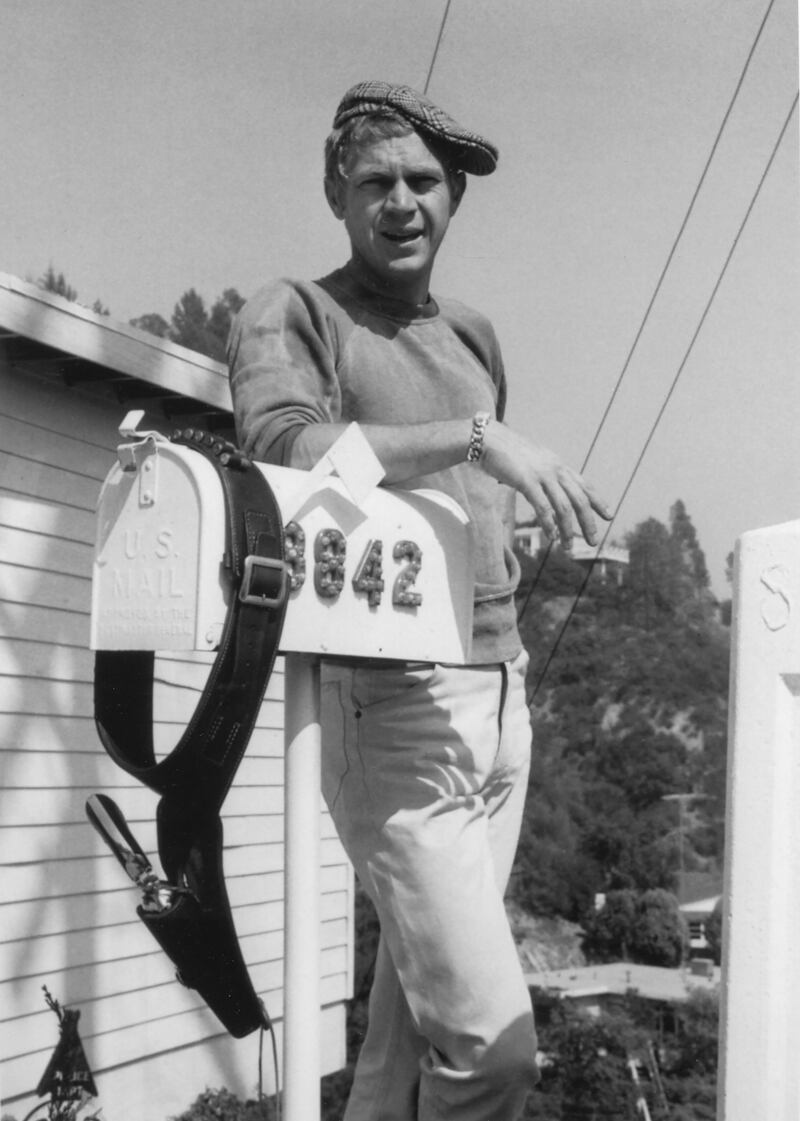
Casual 1960 – A rare and relaxed photo of Steve McQueen standing in front of his home mailbox on 8842 Skyline Drive in Laurel Canyon, Los Angeles. The 883-square-foot home was built in 1952.
MPLASomewhere a wide-eyed youngster pulls back, pulse quickening, as he watches an intense blond-haired, blue-eyed actor command the wheel of a 1968 Ford Mustang 390 GT in a chase against a black Dodge Charger through the rolling hills of San Francisco in Bullitt. Somewhere someone watches The Magnificent Seven exchange bullets for the 20th time, and he enjoys it as if it were his first viewing. This fan sits in front of the screen, glued and transfixed. Like a child, the viewer is enraptured by those eyes, that cocky grin. Somewhere a youth envisions himself as a World War II POW trying to crawl underneath a barbed-wire fence in the video game version of The Great Escape. Or perhaps the youth has seen a mesmerizing face on the cover of a fashion magazine or in a popular car commercial and murmured aloud, “This guy looks cool.”
ORDER ‘STEVE MCQUEEN: IN HIS OWN WORDS’ HERE
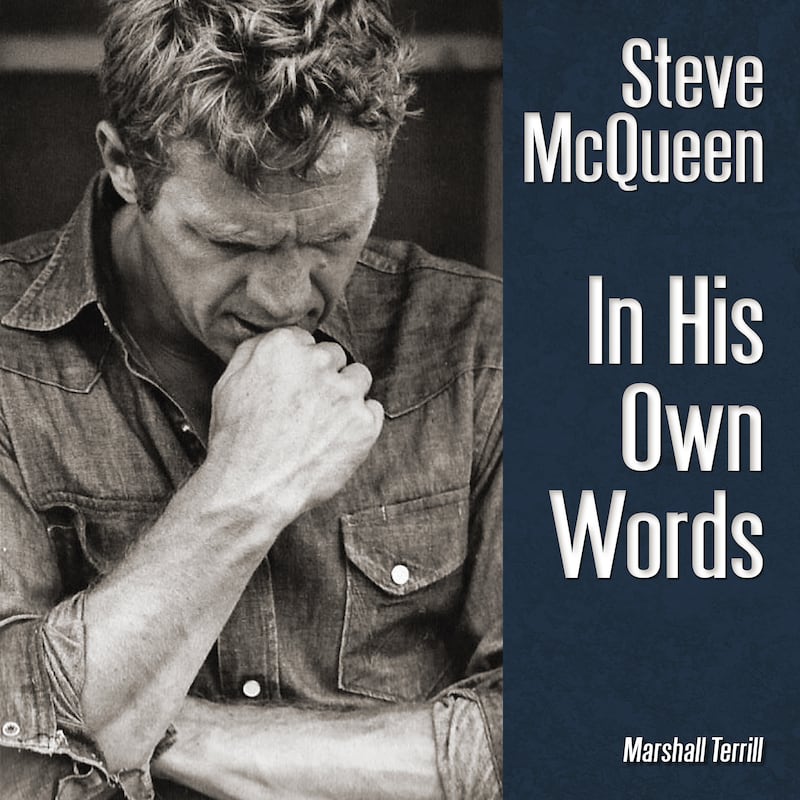
That guy is none other than Steve McQueen, the global superstar and icon of cinema, whose life was claimed by cancer four decades ago. But like a phoenix from the ashes, McQueen’s legacy has only grown stronger over the years.
McQueen has been reinvented since his Nov. 7, 1980, death as much more than a movie star. In today’s world, he is a silent pitchman, a fashion icon, an enduring mythical figure of alpha-male coolness, and the original American badass. His image and likeness are omnipresent.
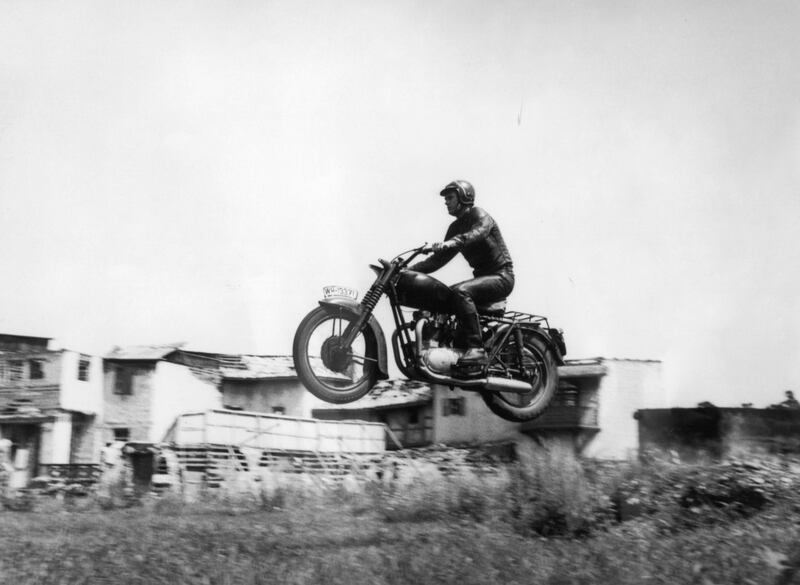
Great Escape 1962 – Steve McQueen tooling around on a motorcycle in between takes on The Great Escape, the 1963 movie that minted him a worldwide superstar.
MPLAThe McQueen mystique has been used to promote sunglasses, computer games, liquor, watches, jackets, T-shirts, jeans, posters, key chains, Zippo lighters, 12-inch figurines, model cars, trading cards, soundtracks, and motorcycles and cars, most notably the Ford Mustang.
Hollywood has continued to find the McQueen name bankable and has cranked out several television and theatrical remakes of movies he helped make famous. They include Wanted: Dead or Alive, The Blob, The Great Escape, The Thomas Crown Affair, The Getaway and Papillon. Even today, McQueen is the barometer of fame. Every new and emerging actor in Hollywood with even a glimmer of a chance of being a major star is always benchmarked against him. The press asks, “Is he the new McQueen?” Unsurprisingly, the answer is eventually always, “No.”
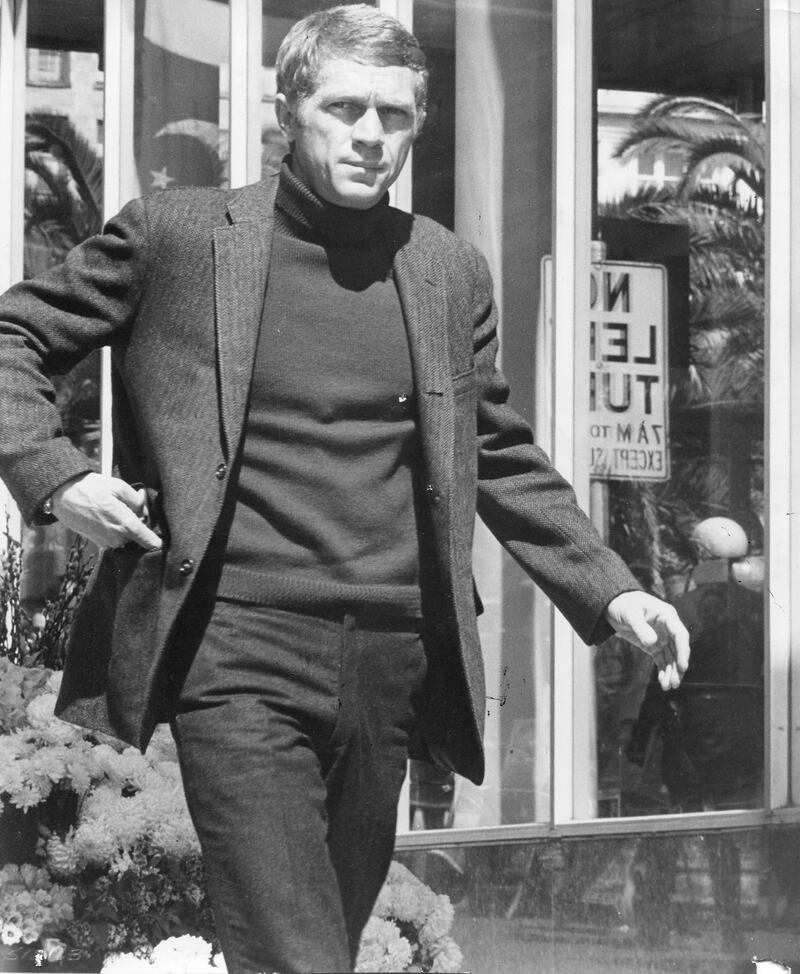
Bullitt 1968 – Bullitt is the defining movie of Steve McQueen’s illustrious film career. McQueen played a cop against type and created a highly nuanced and complex character who was not a clear-cut law enforcement officer but his own man.
Publicity Photo Warner BrothersThe critics in McQueen’s lifetime, who intimated that he was just playing himself, have been replaced by a new generation of scribes who now laud his performances with hyperbole, superlatives, and adjectives reserved for gods.
Legions of McQueen fans have sprung up all over Tinseltown, including many well-known actors who would do anything to capture his on-screen magic. The likes of Brad Pitt, Leonardo DiCaprio, Daniel Craig, Christian Bale, Kevin Costner, Pierce Brosnan, Mickey Rourke, Bruce Willis, Mark Wahlberg, Jason Statham, and Woody Harrelson are all card-carrying members of the Steve McQueen Appreciation Society. Even today, McQueen is still the barometer of fame.
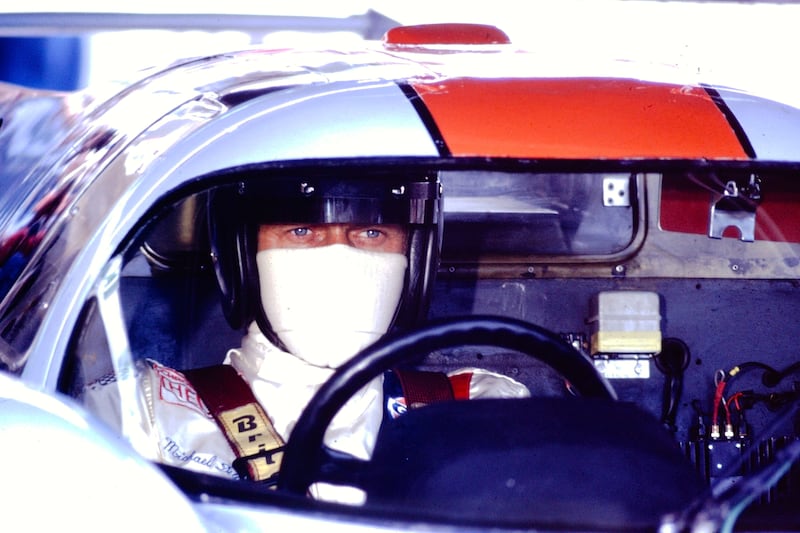
Le Mans 1971 – Le Mans had been marinating inside of Steve McQueen’s head for a good decade, and he waited patiently until he had “the juice” to get it off the starting grid. He not only wanted to show his love and admiration for the sport but introduce it to the masses.
Don NunleyAfter all, not many people have that X-factor. This is most clear in his oft-used moniker, the ‘King of Cool.’ Most people never get to choose their nicknames. People bestow these names and phrases on you, depending upon what they think best suits you, and you have no choice in the matter. McQueen was crowned the King of Cool—essentially, men wanted to be him, and women wanted to be with him. The smallest gesture, the simplest garment, anything he touched turned to gold. A look or a glance could convey a thousand words and emotions without McQueen uttering a single sound.
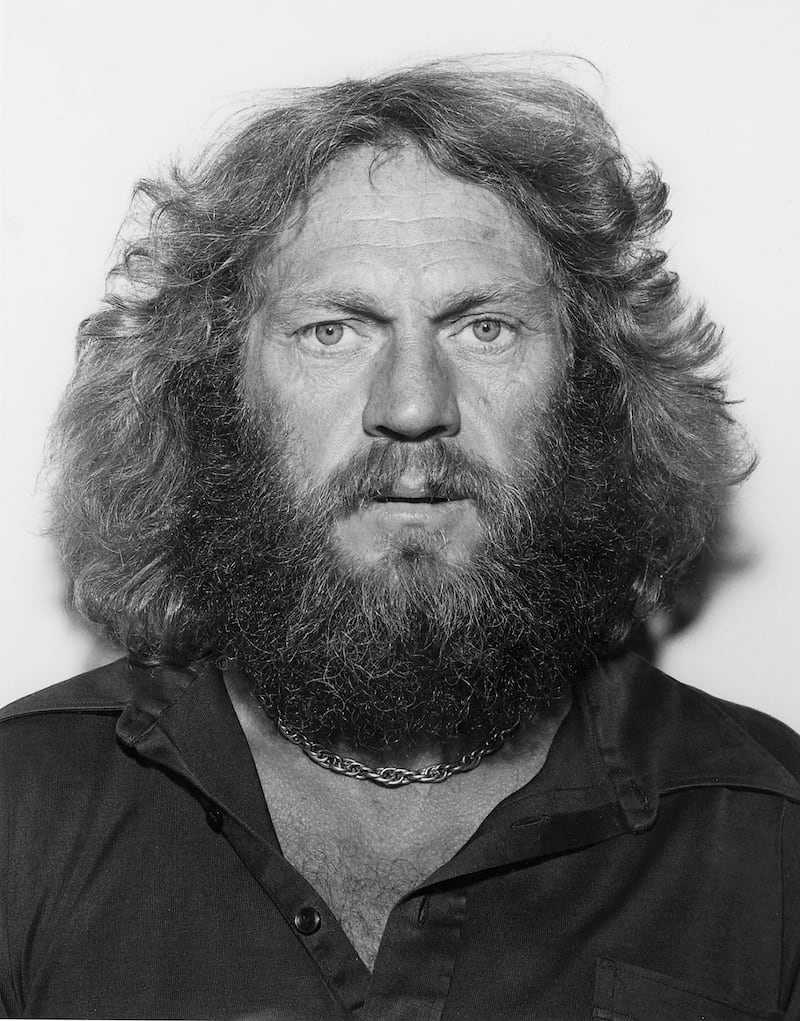
Obscurity 1976 – This mid-to-late 1970s photo was during a time period when Steve McQueen faded into the background as a means of self-preservation. He grew a shaggy beard, let his trademark long blond locks grow long, and wore casual clothes and gold chains.
MPLAToday, however, his style and talent are admired for how good he truly was. He could play any character. No one did action quite as convincing as McQueen, whether wielding a shotgun in The Getaway or putting out a fire in The Towering Inferno. He developed the archetypal role of the rebel in films such Papillion, The Sand Pebbles, Hell is for Heroes, and The Cincinnati Kid. But he could also be a dashing matinee idol and war hero in roles such as The War Lover and The Great Escape. He could play a cowboy and hero of the west in The Magnificent Seven and Nevada Smith. When everyone said he could only play tough guys and rebels, he proved them wrong in The Thomas Crown Affair. He broke the mold with the ice-cool cop in Bullitt, and all that have followed are just pretenders to the throne. He could even make people laugh on occasion in The Honeymoon Machine and The Reivers, or he could play the romantic lead in Love with the Proper Stranger. Most impressively, he even learned to grow old gracefully with maturity and depth in Enemy of the People and Tom Horn. This range and quality would simply not be possible without genuine ability and talent.
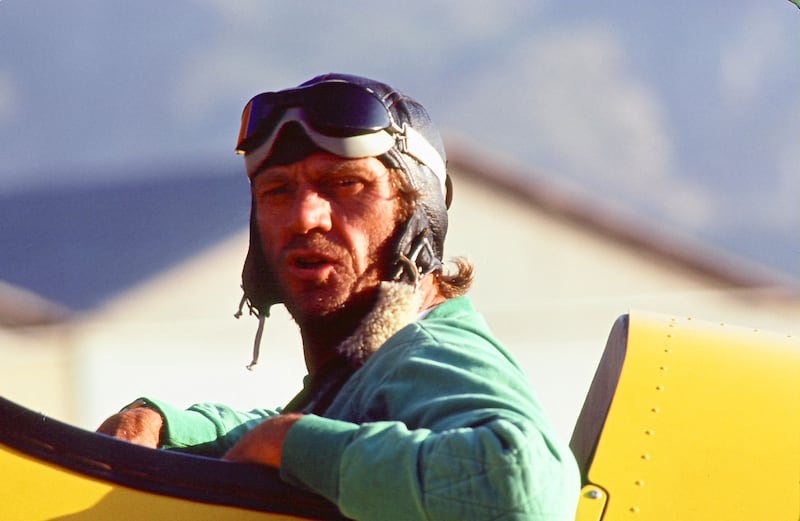
Santa Paula 1979 – Steve McQueen loved the aviation lifestyle and was hands-on about every aspect of flying. He got his pilot’s license in May 1979.
Barbara Minty McQueenMcQueen was a megastar in his lifetime. But if it is at all possible, his acting has become even more important. This is a film legacy that only a few will ever attain in motion picture history. The actor who rose above his circumstances to achieve great fame and wealth is a beloved figure today. His life experiences, insolent charisma, smoldering sexuality, and definitive cool made him a superstar of cinema. His fear of failure gnawed at him, and the paranoia that his supposed lack of acting talent would be found out was the driving force behind every one of his performances. McQueen’s insecurities were always brimming underneath the surface of a false bravado, the result of a personal life that was filled with childhood rage, pain, and emotional scars that never quite healed. He lived his life looking in the rearview mirror, always on the run, yet he sucked the juice out of life.
To many, McQueen still means so much. Long live the King of Cool.

